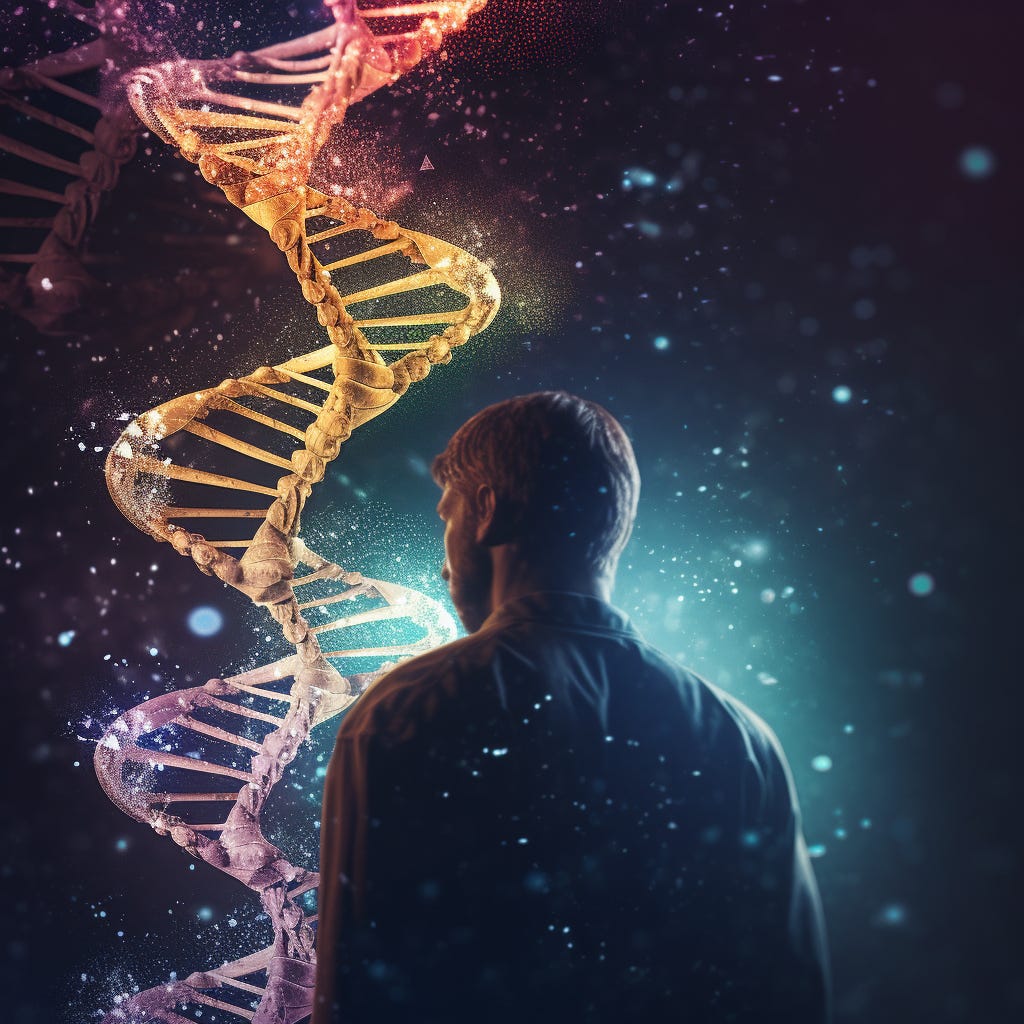NatSec & Biotech Update #0
A change of pace
I hereby inaugurate the slightly rebranded blog and this new post series on biotechnology and international relations. Why, you ask?
First of all, I have come to be fascinated by the relationship between biology and politics. This is nothing new in the history of political thought. Aristotle famously said: “Man is by nature a political animal.” By this he meant that humans’ biological nature had equipped them with the sociability and capacity for reason necessary for political life in common. Later thinkers, from the Roman Stoics to the U.S. Founding Fathers, also firmly grounded their politics in their understanding of human nature.
Our scientific understanding of human nature has of course greatly improved since premodern times. Above all, Charles Darwin’s theory of evolution was a fundamental paradigm shift, comparable to the Copernican Revolution. After Darwin, human nature could no longer be understood as an unchanging ex nihilo creation—in the image of a deity or otherwise—but rather as the product of the evolution of one particular branch of the great tree of life, by which all of the Earth’s organisms are related. Evolutionary theory showed that humanity was defined by variation, heredity, and continuous and ongoing evolution according to environmental and other pressures.
Scientists since Darwin have further developed his theory with insights into heredity, population and behavioral genetics, evolutionary psychology, and sociobiology. One of the most interesting ideas is that of gene-culture coevolution: the process by which human biological nature (encapsulated in genes) influences human culture and, in turn, human cultures impact human nature by affecting reproductive patterns and thus gene frequencies.
Every culture has had particular, often differing, attitudes towards (anti)natalism, family life vs. celibacy, endogamy vs. exogamy, the definition of the in-group, and so on, profoundly affecting who reproduces and how they reproduce. The impact of this culturally-influenced evolutionary history remains documented in our genes, as with the historical endogamy of Jewish populations, consanguinity in the Islamic World, and the remarkable impact of the Indian caste system, often with significant implications for health and ethnic/religious identity. Joe Henrich of Harvard is probably the leading scholar of gene-culture coevolution today, with his book The WEIRDest People in the World arguing that the medieval Catholic Church’s ban on cousin marriage fostered Western individualism. “Evopolitics” we may call the political aspect of gene-culture coevolution: how politics, notably in the form of laws and shared values, affects human evolution.
Secondly, bio/politics are now being transformed by momentous developments in the field of biotechnology. As Steve Jobs said shortly before he died: “The biggest innovations of the 21st century will be at the intersection of biology and technology. A new era is beginning.” The collapsing cost of whole-genome sequencing, the development of AI and other digital tools to interpret and exploit genetic and phenotypic data, and cheap and precise gene editing such as CRISPR are fundamentally changing the game.
Policymakers are well aware of this. The Biden Administration has set out “Bold Goals for Biotechnology” in areas such as agrifood, manufacturing and materials, bioenergy, sustainability (notably circular economy), health, and biosecurity. The U.S. Congress has mandated a high-level National Security Commission on Emerging Biotechnology (NSCEB)—staffed by the likes of Gingko Bioworks founder Jason Kelly and former Google CEO Eric Schmidt—to make policy recommendations for the often fragmented biotech policy space. China’s economic planners consider biotech to be an “emerging industry of strategic importance” and are driving massive investments into the field. The European Union is also upping its game: considering biotech a “critical technology area,” liberalizing gene-edited crops, and preparing an EU Biotech and Biomanufacturing Initiative to boost the sector.
For the purposes of these posts, “National Security” should be considered in the broad sense accepted by U.S. policymakers as:
[T]he security and defense of the United States, encompassing national defense, economic competitiveness (including energy security, food security, and resilience of critical supply chains), and strategic geopolitical influence.
This definition of National Security goes far beyond defense questions to broader economic resilience and autonomy, and ultimately amounting to a general geopolitical capacity. There is substantial overlap with the EU concept of “Strategic Autonomy,” referring to:
[T]he capacity of the EU to act autonomously—that is, without being dependent on other countries—in strategically important policy areas. These can range from defence policy to the economy, and the capacity to uphold democratic values.
Thirdly, I am a news junkie. I read a ton of stuff anyway and I think it’s good to leave a record of key developments both for myself and for others to use. The stories and breakdowns I gather here will serve as raw materials for more detailed analyses to be published here and elsewhere.
Fourthly, it’s synergetic with my work as an EU health and biotech policy consultant at Acumen—a great organization—where I work first-hand in the advocacy-and-policymaking mosh pit in a major regulatory capital.
My interest in bio/politics is why I launched the Genetic Choice Project, which I am pleased to say now has over 250 subscribers, including some high level figures in the field of reprotech and/or genetics. That publication I intend to keep clinical and more focused on reproductive issues. Broader discussions of biotech and politics/international relations, as well as more original / editorial / analytical perspectives I will reserve for this blog.



Craig, I'm pleased you've found time to reignite this blog. I'm looking forward to more interesting posts.